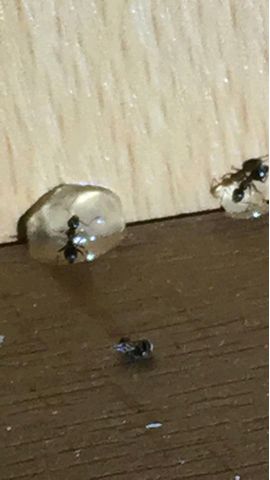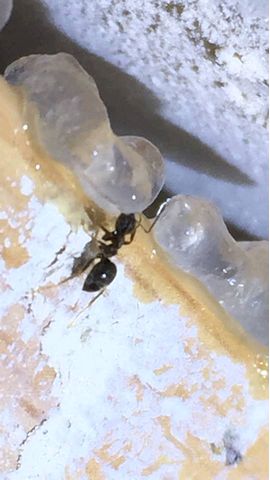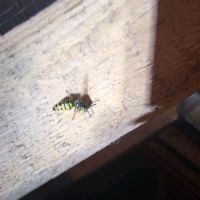

AS far as we know there are 10-11,000 species of ants in the world with only 50 different types living here in the UK, this mainly down to climate as ants prefer warmer locations.
Black ants or garden ants are often the nuisance pest that appears in the house and can cause a lot of stress to unsuspecting home owners.
As any pest you should begin by trying to locate the food source and removing it where possible, black ants are pretty omnivorous so will be attracted to bins, spillages and even animal faeces.
There are numerous wives tails to controlling ants unfortunately they are a hardy foe and tipping boiling water over a nest won’t stop them, in fact it can encourage them to move and relocate as it wouldn’t control the whole nest.
Spraying pesticide to form barriers leading to the house is possible with both professional and DIY products but this can be damaging to the environment and should be done as a last resort.
We find using gel based baits that can be taken by the workers back to the main nests and controlling within have had better results long term even if the immediate result isn’t evident, it’s a patience game but one worth playing, in addition diatomaceous earth either in dust form or mixed to form a liquid slices through the cuticle of the ant and causes dehydration, the product is very safe to use around the environment and pets and the cost can be less in many situations.
You can call and speak to our advisors today or have a look at a few DIY products available to aid control if you feel you would like to try yourselves.


Summer is drawing near and the queen wasps are now beginning to come out of their hibernation stage and will soon be building their nests. Here are some facts about wasps:
1) Wasps are needed in our environment as they will eat flies, caterpillars and aphids which cause damage to the plant life in this country;
2) Wasps build fantastic structures for their nests. They will chew on strips of bark and use their saliva to form a paper like material to complete the nest;
3) The nests can grow quite large and by the end of the summer there can be anywhere between 5000 to 10000 wasps in one nest;
4) A colony will only last for one season and wasps will never use the same nest twice;
5) There are 9,000 different types of wasps in the country and only 9 will form social groups and nest;
6) Wasps stings can cause anaphylaxia. This is incredibly dangerous and can kill so it is not advised that any non professional people should not attempt to remove or disrupt any nests;
7) When a wasp feels threatened or is squashed by someone they will release a pheromone which will cause other wasps to defend so you will at risk of being stung;
8) The two most common wasps are vespula vulgaris (common wasps) and vespula germanica (German wasp).
